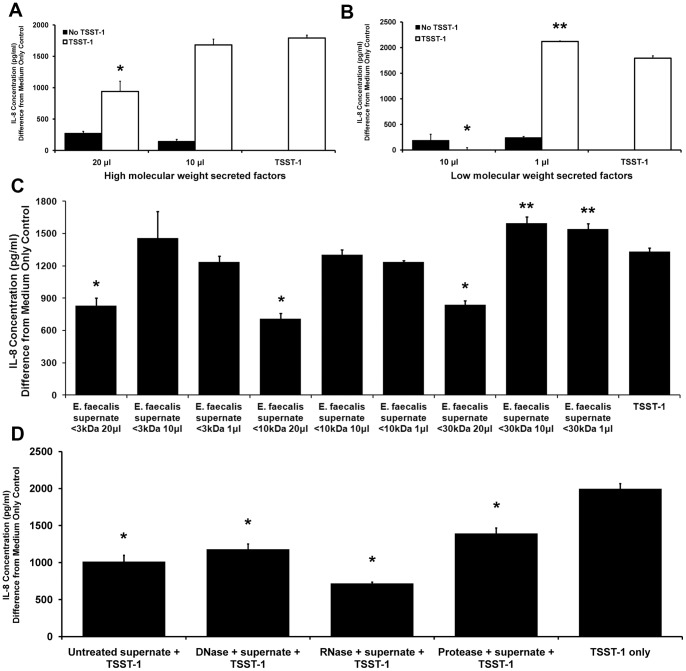Figure 6. E. faecalis MN1 secretes a small molecule responsible for inhibition of TSST-1-induced IL-8 production by HVECs.
A) Eighty percent ethanol was used to precipitate high molecular weight factors from filter-sterilized E. faecalis MN1 supernate. Isolated factors were added to HVECs ± TSST-1 (100 µg/ml) for 6 h, and IL-8 was measured by ELISA. Only the 20 µl condition showed inhibition of TSST-1-induced IL-8 by Student's t test (p<0.001). B) Low molecular weight (unprecipitated) factors were concentrated by lyophilization, resuspended in PBS to the same concentration as the precipitated material, and incubated with cells as described above. Lower doses of unprecipitated material were used to minimize cytotoxicity to the HVECs. The 10 µl condition showed absolute inhibition of IL-8 production (*p<0.001), whereas the 1 µl condition actually enhanced IL-8 levels in response to TSST-1 (**p<0.001) by individual Student's t tests. These results are based on the average of two separate experiments, each containing three replicates per condition. C) Filter-sterilized E. faecalis MN1 supernate was separated into different molecular weight fractions using Microcon centrifugal filters and incubated with HVECs +/− TSST-1 (100 µg/ml) for 6 h. Inhibition of TSST-1-induced IL-8 production is maintained in all fractions (<3 kDa, <10 kDa, <30 kDa) when the cells were incubated with 20 µl of material (*p<0.005); a higher level of IL-8 was detected when cells were incubated with smaller amounts of the <30 kDa fraction (**p<0.05) by individual Student's t tests. These data are from a single experiment carried out in triplicate. D) Filter-sterilized E. faecalis MN1 supernate was treated with DNase, RNase, or protease prior to incubation with TSST-1 (100 µg/ml) on HVECs for 6 h. None of the treatments affected the ability of the secreted factor to inhibit TSST-1-induced IL-8 production from the cells by individual Student's t tests (*p<0.001). These data are the average of two experiments, each done in triplicate.

